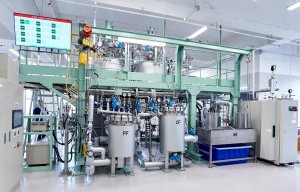
HKRITA technology makes the 2022 R&D 100
Ambitious legislative measures aimed at improving environmental sustainability in the EU formed the main theme at the 2020 virtual Dornbirn Global Fiber Congress (Dornbirn-GFC).

2nd November 2020
Innovation in Textiles
|
United Kingdom

Report summary
Ambitious legislative measures aimed at improving environmental sustainability in the EU formed the main theme at the 2020 virtual Dornbirn Global Fiber Congress (Dornbirn-GFC).
Under the European Green Deal, the EU will pump Euro750 million into industrial and manufacturing projects to make the EU climate-neutral by 2050. Also, a new circular economy action plan will aim to stimulate the development of climate-neutral and circular products.
Extended producer responsibility (EPR) will be strengthened, there will be separate collections for waste clothing, the Single-Use Plastics Directive will put pressure on nonwovens manufacturers to use alternatives to synthetic fibres, and a Waste Framework Directive will make separate textile waste collections obligatory by January 2025. The new measures will create difficulties for European fibre and textile producers, and even more difficulties for the burgeoning e-textiles industry as the latter marries together the textile industry and the electronics industry and this makes recycling difficult.
Nonetheless, the EU is continuing to fund new e-textile based products—via the Horizon 2020 research and innovation programme and the European Smart Textiles Accelerator (SmartX) programme. The first nine projects to be funded, involving 16 different companies from eight European countries, are the Airbag Jeans project, the Sweat Monitoring T-shirt project, the Dynaback T-shirt project, a textile electrocardiogram (ECG) solution for long-term monitoring, the Bodee baby monitoring project, the Seat Mat project for preventing pressure ulcers, a baby carrycot able to monitor the physiological parameters of babies and infants, smart airbag belts worn around the hips, and the Moca-Ba textile sensor for integrating into clothing.
Buy this report
Publisher: Textiles Intelligence
8 pages, published in October 2020
Report price: Euro 265.00; US$ 350.00
Reports are supplied in PDF format only via email and can be purchased by credit card or via PayPal. Alternatively, readers can email their order and we will invoice accordingly and send their report by email upon receipt of payment.
To buy this report, please select one of the buttons below or email [email protected].

Business intelligence for the fibre, textiles and apparel industries: technologies, innovations, markets, investments, trade policy, sourcing, strategy...
Find out more